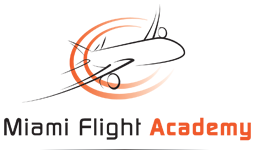News and Updates – FAA Announces Super Bowl LV Safety Plan
The Federal Aviation Administration (FAA)is working with federal, state and local law enforcement agencies, the aviation community, and the National Football League to ensure safe, secure and efficient operations before, during and after Super Bowl LV. The Super Bowl will be held Feb. 7, 2021, at Raymond James Stadium in Tampa, Fla.
The agency is planning for hundreds of additional take-offs and landings and aircraft parked at Tampa Bay airportsduring Super Bowl week. Special procedures, includingTemporary Flight Restrictions(TFR) and aNo Drone Zonewill limit flights around Raymond James Stadium before, during and after the game.
Thegame day TFRwill go into effect at approximately5:30 p.m. EST. It will cover a 30 nautical mile (34.5 mile) ring, centered over the stadium and from the ground up to 18,000 feet in altitude. It will expire at 11:59 p.m. EST, but may be extended if conditions warrant. Drones also are prohibited inside the TFR.
The FAA has establishedadditional TFRs torestrict drone flightsfor twonautical miles (2.3 miles) around Julian B. Lane Riverfront Park and Curtis Hixon Waterfront Park from the ground to an altitude of 2,000 feetfromFriday, January 29,through Saturday, February 6, during event hours.
Pilots must be aware of thelatest TFRs and checkNotices to Airmen (NOTAM)before flying. Pilots and drone operators who enter the TFRs without permission could face civil penalties that exceed $30,000 and potential criminal prosecution for flying drones in the TFR. The FAA encourages drone operators to check allnotices(PDF)to determine where drones may fly.
Drone pilots should check theFAAs B4UFly appto determine when and where they may fly.
The TFR will not affect regularly scheduled commercial flights at Tampa International Airport (TPA). Emergency, medical, public safety and military operations may fly in the TFR while it is in place, in coordination with air traffic control.
The North American Aerospace Defense Command (NORAD) enforces TFRs in real time.
